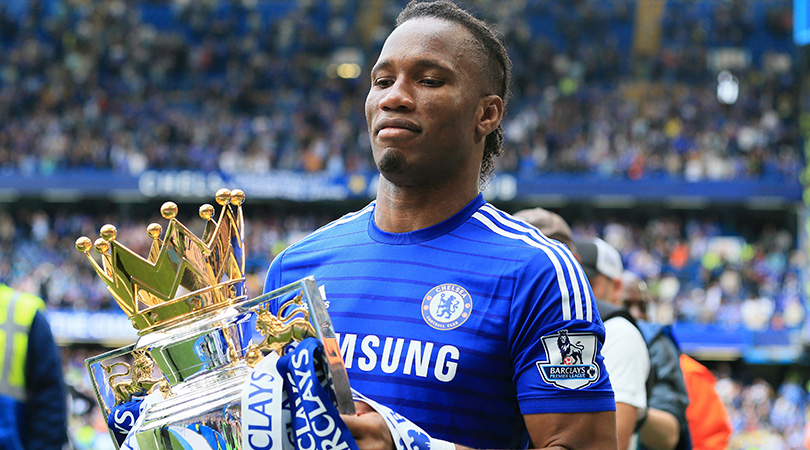11 surprisingly homegrown players who could help Premier League clubs beat the 13-foreigner quota
The FA will plough on with plans to cut squad imports regardless of Brexit – but that doesn’t necessarily make non-British internationals off-limits
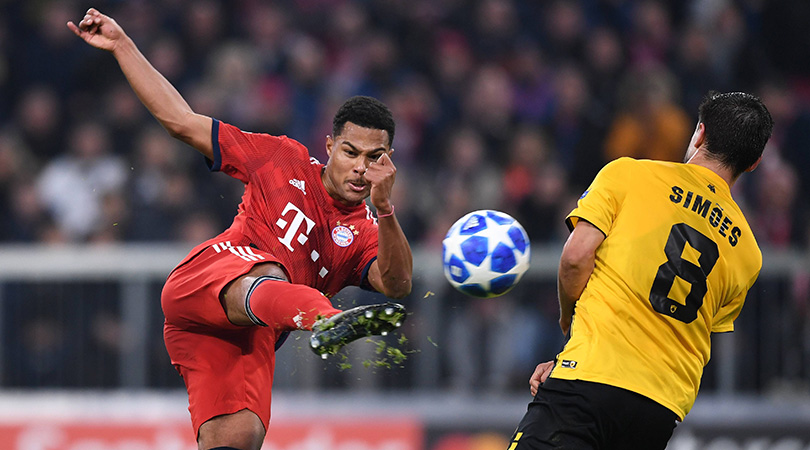
There’s a dirty rumour going around that Premier League clubs may have to reduce the maximum number of overseas players in their 25-man squads from 17 to 13.
Actually, it’s more than a rumour – the FA have made this request to the Premier League, who have replied, “Who are you again?” If such a restriction is introduced, British players’ hefty transfer fees would soar higher still.
But it’s not just Brits who’d be in demand. We mustn’t forget those pearls on the seabed: foreign players who meet the Premier League’s criteria for a squad member to be designated ‘homegrown’. The criteria is less nebulous than we’re led to think: a Premier League homegrown player is anyone who was registered to an English or Welsh club for three full seasons or a total of 36 months before their 21st birthday, or by the end of the season in which they turned 21 (which seems to render that first part redundant, but never mind).
As a result, several foreign footballers count as homegrown – most famously, Cesc Fabregas. Here are 11 more: some unexpectedly eligible, others simply forgotten, all with a bargaining chip that could prove useful in the next few years.
Suso (Milan)
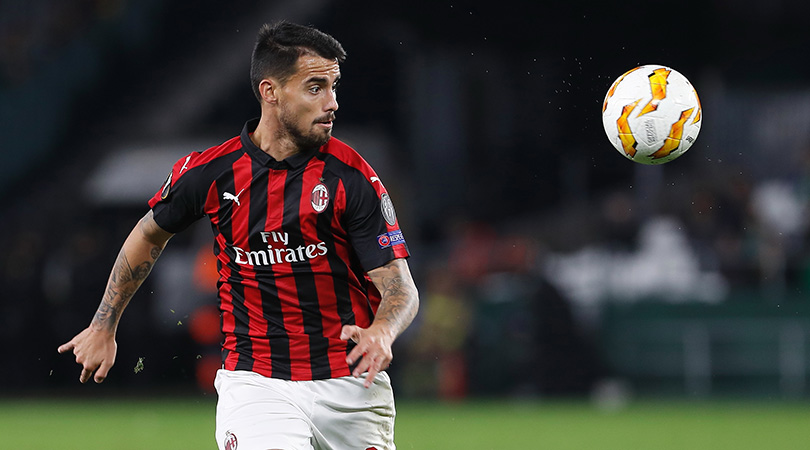
Since he left Liverpool, it’s been nothing but good news for Suso, or Jesus Joaquin Fernandez Saenz de la Torre to his mates (they’re a formal bunch). The winger was at Anfield between the ages of 16 and 21 but rarely looked anything special, until he showed his ability upon being signed by Milan and loaned to Genoa, where he became only the second Spaniard in history to hit a Serie A hat-trick, after Luis ‘not that one’ Suarez.
Now, Suso is flourishing in Italy and making Spain squads. He’d still be considered a homegrown player in England, as would Fabio Borini, his former Liverpool and current Milan team-mate – although the queue for his signature is quite a bit shorter.
Get FourFourTwo Newsletter
The best features, fun and footballing quizzes, straight to your inbox every week.
Paul Pogba (Manchester United)
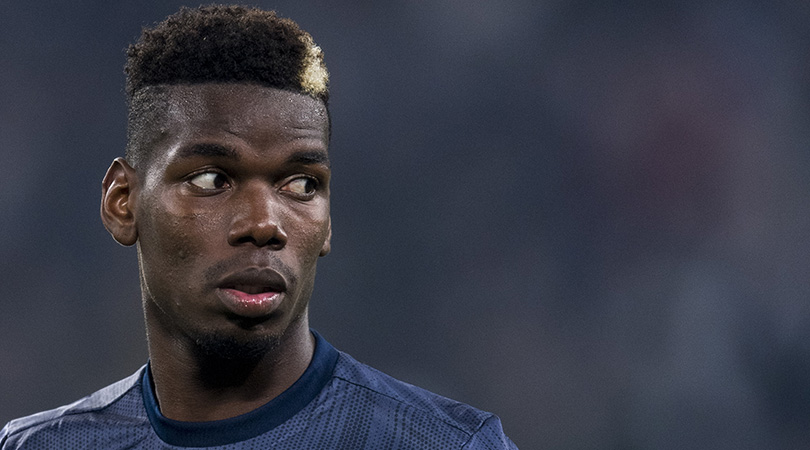
Pogba seems an unlikely homegrown player, having joined Manchester United at 16 and left them at 19, but those three years are enough to tick the Premier League’s box.
Of course, if any Premier League club does want to buy the Frenchman, it’s unlikely that his status as a homegrown player is at the forefront of their thinking. “Hmm, our squad has room for one more… all right, put in a bid for the boy Pogba.”
That said, if Pep Guardiola’s assertion is true and Pogba’s agent really did offer him to Manchester City in January, then Mino Raiola would have been better off trying Chelsea instead, seeing as they bought Ross Barkley that month. Maybe Maurizio Sarri could talk Jose Mourinho into a Pogba/Drinkwater swap deal...
Romelu Lukaku (Manchester United)

That’s right: Pogba and Lukaku both qualify as homegrown players. This must be why Manchester United had to pay £180 million for the pair of them – it’s the British premium.
Lukaku was pretty well established when Chelsea bought him in 2011, being two games away from a century of appearances for Anderlecht and already into double figures for Belgium caps. Nonetheless he was only 18, and playing three seasons in England before his 21st birthday – two of them on loan at West Brom and Everton – mean he’s technically homegrown, albeit by stretching the rules to breaking point: Lukaku turned 21 two days after his third Premier League season ended.
Oguzhan Ozyakup (Besiktas)
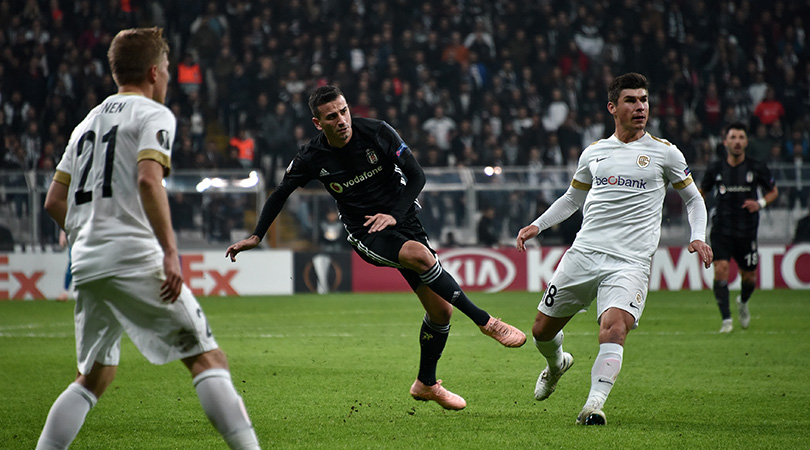
The former Arsenal midfielder is tearing it up in Turkey and has previously been linked with a return to the Premier League in the form of Everton (although most recently it was then-Championship Cardiff launching an ambitious – and unsuccessful – attempt to nab him last season).
We say ‘return’ – Ozyakup never played a minute in the top flight during his four years in north London (although to be fair, he was only 19 when he departed for Besiktas). The future Turkey international did get on the pitch for half an hour across two League Cup ties, but his only involvement in the Premier League was as an unused substitute, sat alongside Gilles Sunu, Ignasi Miquel and Henri Lansbury, watching Arsenal lose 8-2 at Old Trafford. No wonder he left.
Aaron Mooy (Huddersfield)
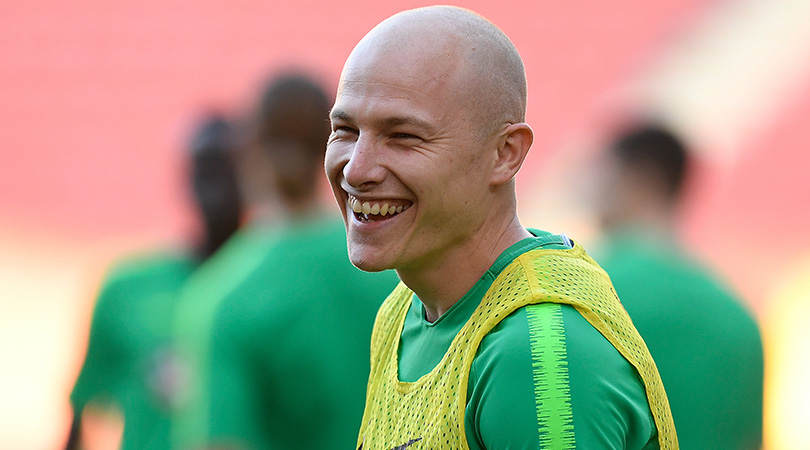
In recent years, Manchester City have signed a few players from their City Football Group stablemates in Australia and America, including a 21-year-old Jack Harrison, a 19-year-old Daniel Arzani and, for reasons best known to themselves, a 27-year-old Mix Diskerud in a transfer that was officially announced by Umbro, having been brokered between an Adidas club and a Nike one. Football!
City signed Mooy, as they would Diskerud, with no intent of playing him – but after joining Huddersfield on loan and then permanently, the Aussie has become central to everything the Terriers do. And there’s a bonus. Having spent a few years in Bolton’s academy (before a spell in Scotland with St Mirren), the midfielder unexpectedly has domestic status.
It’s an extra help to Huddersfield, who use all 17 slots available for overseas players without naming Mooy or Danish midfielder Philip Billing, who also qualifies as homegrown – although you suspect that if necessary, Mooy would be given a place ahead of Jon Gorenc Stankovic.
Gylfi Sigurdsson (Everton)
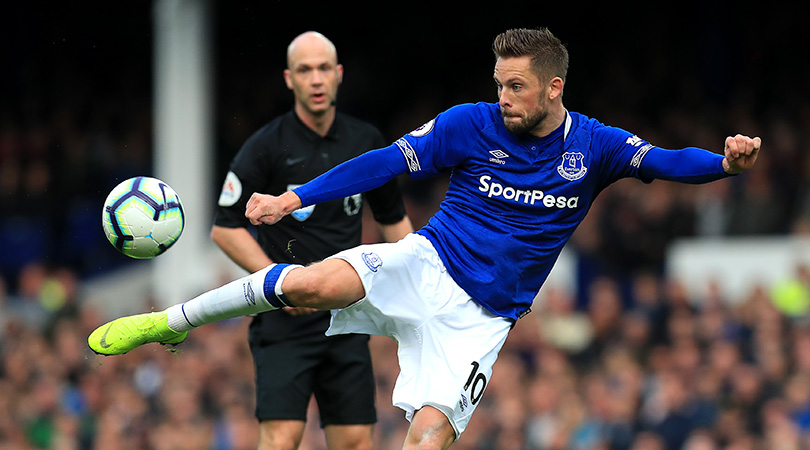
Everton fill only 10 of their 17 allotted overseas slots (the show-offs) and that includes the less-than-exotic Seamus Coleman. They don’t really need Gylfi ‘Thor could be my middle name and in actual fact it is’ Sigurdsson to play his homegrown card.
Nonetheless, the Icelander came through Reading’s academy and there’s probably a tax break in it for the Toffees somewhere.
Serge Gnabry (Bayern Munich)
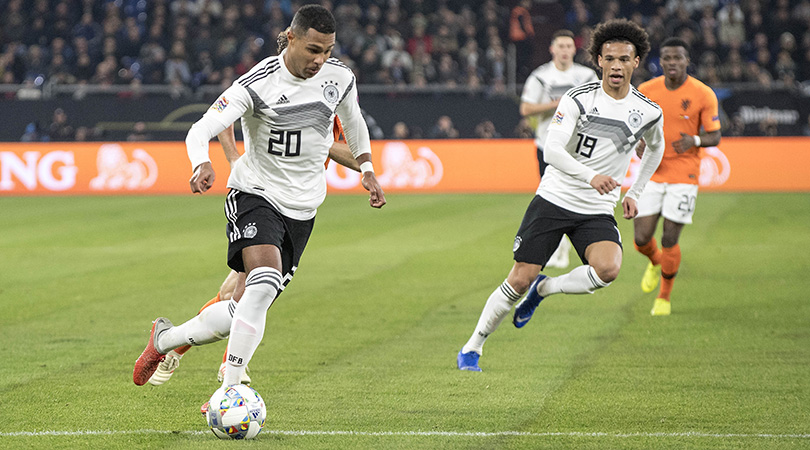
Although he’s German himself, Gnabry may have inspired a number of young English talents in moving to the Bundesliga.
Gnabry flew the Arsenal nest in 2016, shortly after his 21st birthday, having quickly realised there was little point in staying at a time when the Gunners had eight other first-team players capable of operating in his position. His experience on loan at West Brom probably didn’t help: Gnabry saw just 12 minutes of Premier League action and Tony Pulis said he wasn’t at the required level, preferring to play even Craig Gardner on the wing instead. Blimey, Tone.
Anyway, within two years the German top flight had welcomed Jadon Sancho, Reiss Nelson and more; indeed, half of all English players ever to feature in the Bundesliga since its formation in 1963 made their debuts there this season or last.
Gnabry, meanwhile, has featured in all bar one of Bayern Munich’s Bundesliga and Champions League games in 2018/19, having impressed at Werder Bremen and then on loan to Hoffenheim – and he’s still only 23. He has managed his career well. Now, Serge, don’t fall into the trap of signing for Chelsea as a homegrown player.
Chris Wood (Burnley)
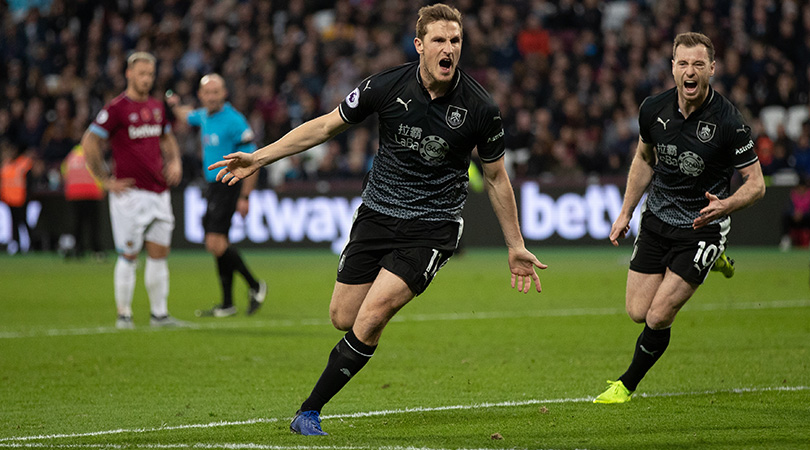
The Aucklander moved to England as a 16-year-old and hasn’t left, presumably making him one of those queue-jumpers that Theresa May has been discussing in such startlingly dismissive terms. Evidently, the atmosphere in West Bromwich just wasn’t hostile enough.
Wood has really been around the houses in his decade on English soil. In chronological order, he has turned out for the Baggies, Barnsley, Brighton, Birmingham, Bristol City, Billwall – sorry, Millwall, then Leicester, Ipswich, Leeds and now Burnley. That’s 10 clubs, and he isn’t yet 27. If anyone has earned homegrown status, it’s him.
Peter Gulacsi (RB Leipzig)
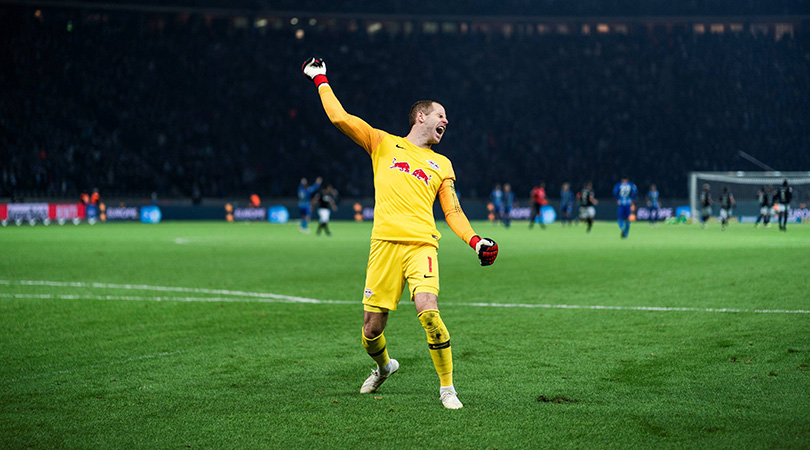
Hindsight is 20/20. Nobody at the time blamed Liverpool for letting Gulacsi, then 23, leave on a free transfer in 2013, and how could they? The former Hereford loanee had never played a first-team game for the Reds in six years there. But his departure as third-choice goalkeeper coincided with Brendan Rodgers binning off Pepe Reina in favour of Simon Mignolet, a move that would take Liverpool five years to fix while Gulacsi became RB Leipzig’s No.1 in a bona fide challenge to be German champions.
Still not convinced? Put it this way: Gulacsi counts as homegrown and would be a better back-up goalkeeper than almost every other first reserve in the Premier League. He would need tempting away from another Bundesliga title tilt, mind, so he’s probably staying put.
Wojciech Szczesny (Juventus)
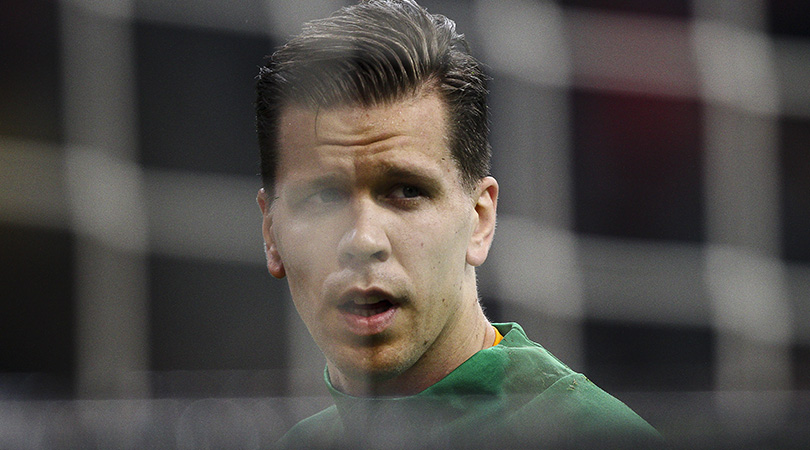
Another goalkeeper, albeit one with a slightly different experience in England, Szczesny featured 180-odd times in all competitions for Arsenal, before Arsene Wenger tired of his antics.
However, the Frenchman cashed in his chips at just the wrong time. Szczesny had been under scrutiny throughout his Arsenal career, and rightly so, yet the goalkeeper was still only 24 when his occasional match-losing errors became too much for Wenger. Off he went to Roma, where he impressed so greatly that Juventus appointed him as successor to the great Gianluigi Buffon. Homegrown or not, the Polish stopper is unlikely to return to England any time soon.
It seems to be no more than coincidence, but a number of overseas goalkeepers have homegrown status. As well as departees such as Gulacsi, Szczesny and Ron-Robert Zieler, incumbent Premier League No.1s Asmir Begovic and Kasper Schmeichel also offer that added benefit.
Hector Bellerin (Arsenal)
The right-back has replaced Cesc Fabregas as the go-to example of a foreign player considered homegrown. Unlike Fabregas, he’s still in the full flourishes of youth, and at 23 Bellerin has a long career ahead of him at Arsenal/Barcelona/London Giants of the European Super League.
Bellerin, like Fabregas, joined Arsenal at 16, and as such the Premier League considers them both to be as English as roast dinners or misplaced self-importance. As a result, the Spaniard has the best-conditioned hair of any homegrown player in the division.
Huw was on the FourFourTwo staff from 2009 to 2015, ultimately as the magazine's Managing Editor, before becoming a freelancer and moving to Wales. As a writer, editor and tragic statto, he still contributes regularly to FFT in print and online, though as a match-going #WalesAway fan, he left a small chunk of his brain on one of many bus journeys across France in 2016.
